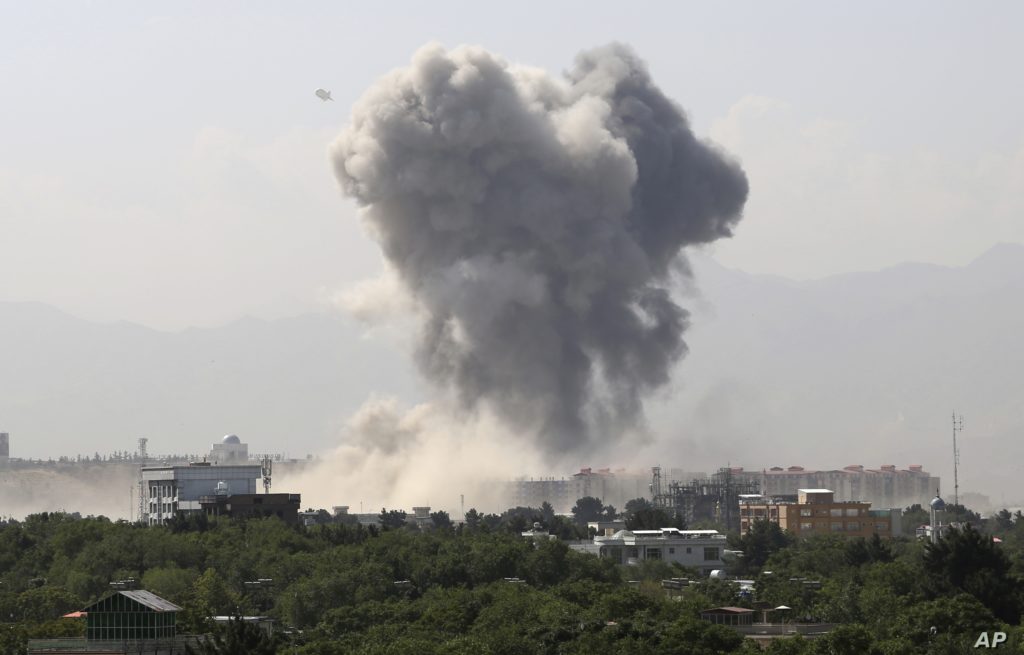Pakistan is still looking for strategic depth with a dual approach to Afghanistan
The recent visit of President Ghani to Pakistan was a message of regional reconciliation, but the insurgents launched a terrorist attack targeting one of the military units of the Ministry of Defense. This very likely was planned in Pakistan, and the implication is that Pakistan has not given up its vicious game
Photo: AP

By: Sadaf Khuram, PMG
Long standing enemies Afghanistan and Pakistan are now once again engaging with each other. President Ghani, with his recent trip to Pakistan, has tried to re-establish relations between Kabul and Islamabad after the overwhelming efforts of governing National Unity government in Kabul. In fact, after 18 years, this was the first time in appearance that the Afghan National Unity government is trying to change its bilateral relations, which have taken on yet another color.
With the formation of the National Unity government, the Afghan government took on a different policy towards Pakistan, where, headed by President Ghani, it tried to isolate Islamabad globally. Almost all countries in the region and even beyond who have links to Pakistan have a consensus regarding Pakistan’s role in international terrorism, especially in Afghanistan. However, the perseverance and vigilance of Pakistani politicians succeeded in shifting this trend and took on all the expectations of Afghanistan, as long as Islamabad succeeded in liberating Mullah Bradar, the Taliban’s deputy and the chairman of the group’s office in Qatar. This changed the view of the Americans again. In fact, with this action, Pakistan has largely escaped global pressures, and this has led NATO and the United States, two key ally of Afghanistan in the current battle, to shift their perception of Pakistan’s position from the less-than-expected Pakistan’s efforts to bringing peace to Afghanistan.
The recent visit of President Ghani to Pakistan was a message of regional reconciliation, but the insurgents launched a terrorist attack targeting one of the military units of the Ministry of Defense and this very likely was planned in Pakistan. It was apparent from the implications of the attack that Pakistan has not given up vicious game again, as well as the futility of the efforts of the president to normalize the relations between Kabul and Islamabad. To citizens of Afghanistan it appeared that Islamabad was emphasizing that improving relations with Pakistan will be effective when a puppet government will be in place in Kabul, in line with Pakistan’s strategic goals in the country.
Now, the families of the victims want the Afghan government to eliminate the terrorists and to end Islamabad intervention in Afghanistan’s internal affairs, in order to ensure that the United States, as well as the national unity government, resolutely guarantee that Islamabad will not support cross-border and transnational terrorist groups in Afghanistan. Along with that, the citizens want the government to increase sanctions on Islamabad by revealing the financial resources and support of the Taliban in Pakistan until the violence in Afghanistan ceases.
In addition, the use of the most dangerous explosives in the aftermath of that Monday attack – and all subsequent and bloodier attacks including that of yesterday’s – revealed that the materials were designed for open borders between Afghanistan and Pakistan, so that Afghan citizens would demand their rule as a system responsible for blood revenge The martyrs of the Pan-Afghan terrorist attack took place in the following days, especially in the attack on Kabul Monday. Otherwise, any negligence and indifference of the government will increase the gap between the citizens and the outcome of Kabul’s efforts to contain the threats of Islamabad in the region will not be sustainable.
(Pasbanan Media Group is the Kabul-based partner organisation of International Affairs Review)